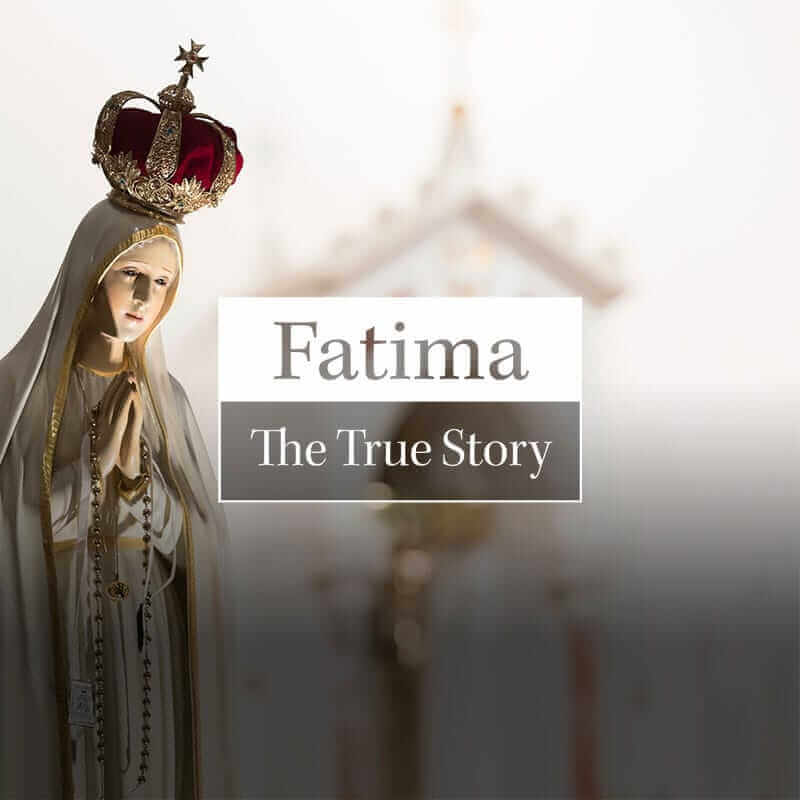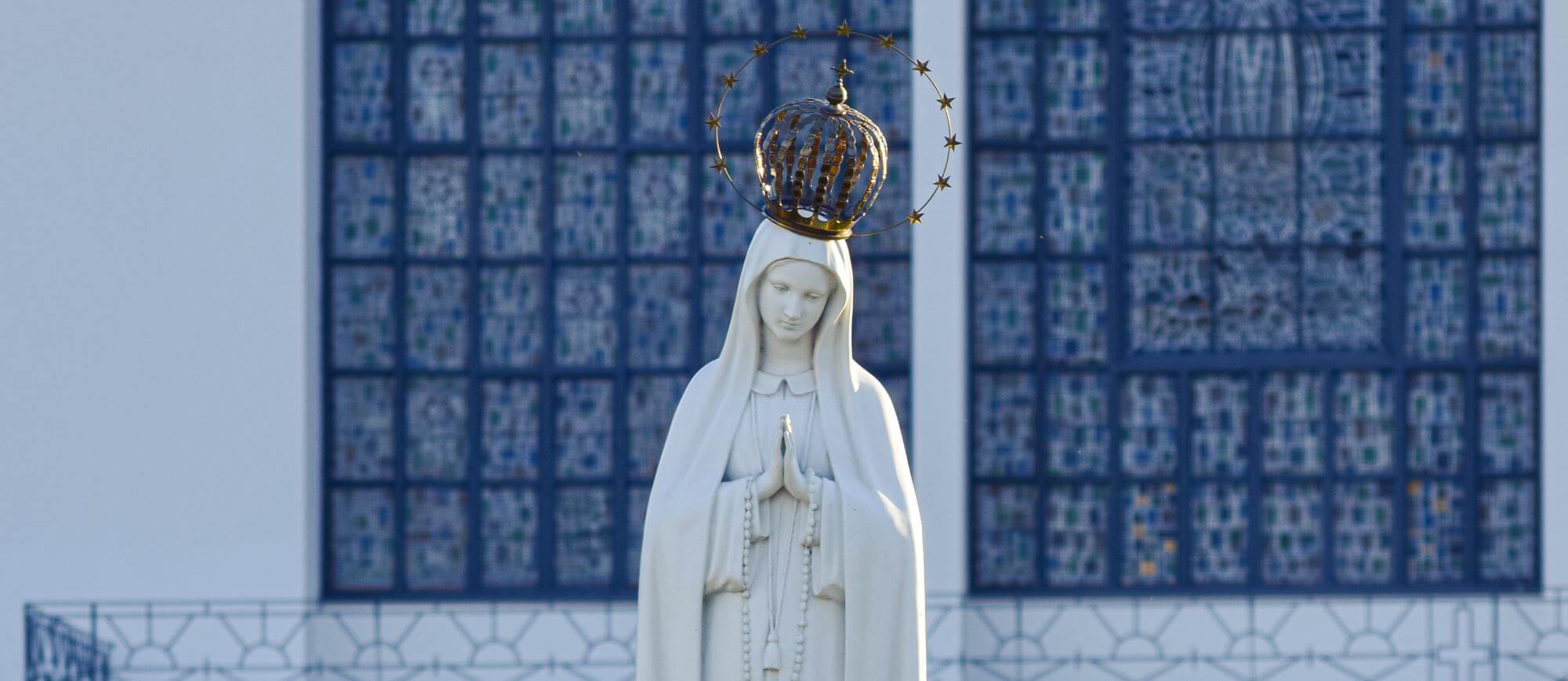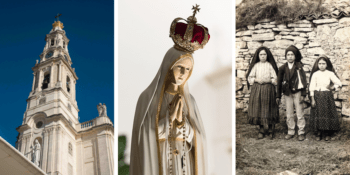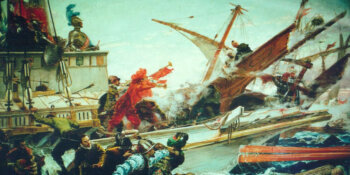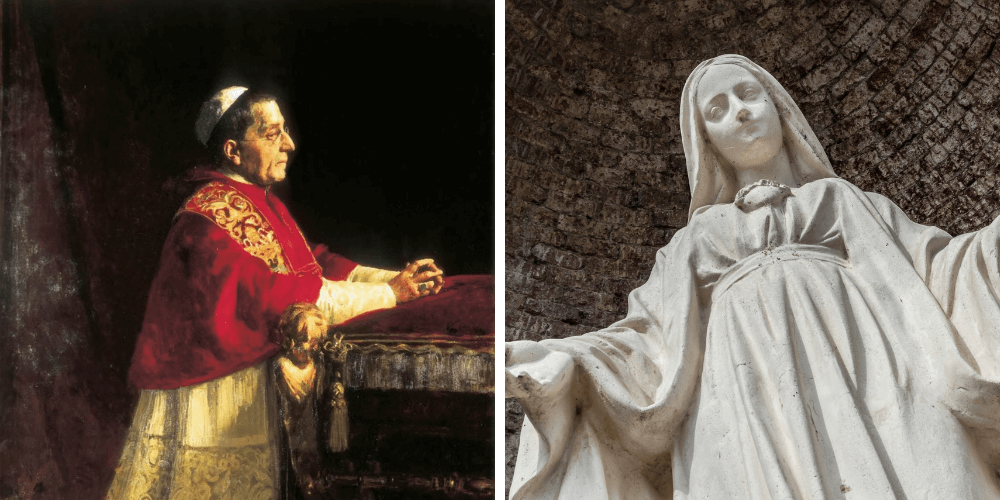
Article by Genevieve Netherton and Gretchen Filz, O.P.
Once upon a time, the world was in great distress.
The Pope was overwhelmed. His heart was filled with deep concern for his flock and their needs.
In his wisdom, he knew that mankind could not help itself—indeed, things had come to such a dire pass that divine aid alone could rescue nations from inevitable misery and destruction.
There was only thing to be done: appeal to the Mother of Mercy, begging her to approach her Son’s throne on behalf of wretched mankind.
What happened next? Did the Queen of Heaven intervene?
The Unknown Side of the Fatima Story
Most Catholics are familiar with the Marian title “Our Lady of Fatima.” Many know the basic story of her apparition to three shepherd children.
But the details—the astonishing lead-up to the apparition and the events that surrounded it—are usually lost to history.
Why did the Blessed Mother come at all? Why to Fatima? Why in the year 1917?
What was happening in the world at that time—and how was it viewed by the Church?
Furthermore, do the events of our own day relate?
Let’s begin to answer those questions now.
The Modern World Plummeting Into Despair
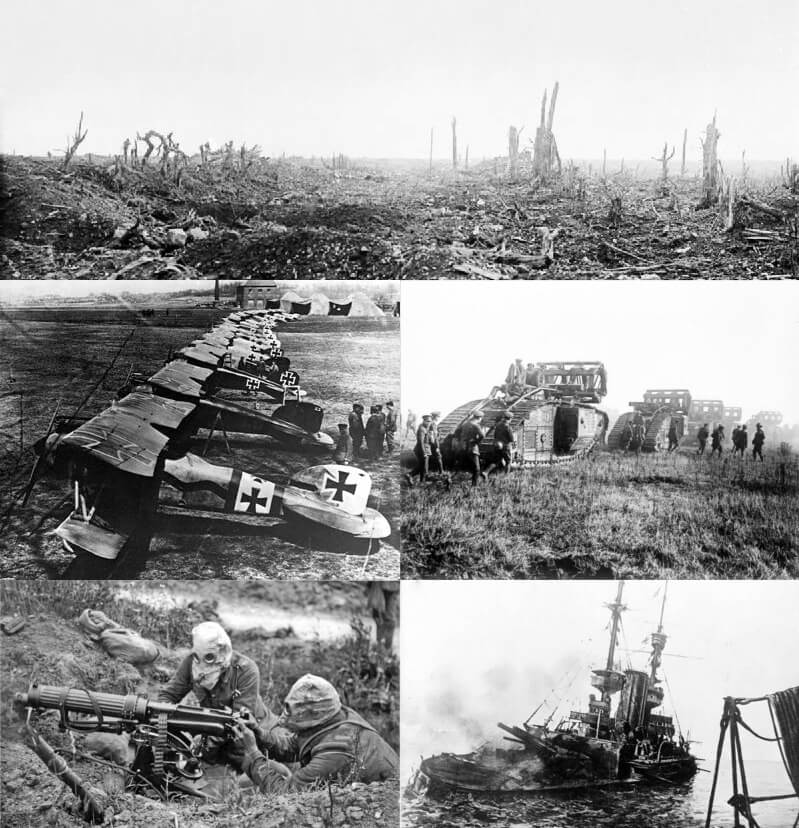
In 1917, mankind was at a decisive moment in history.
World War I, the first truly global conflict the world had ever experienced, had been escalating for three years with no hope for a peaceful end in sight. What started as a local conflict had spread like an incurable disease across the globe. The war’s devastation impacted every corner of the world; before its conclusion, over one hundred countries were in some way involved in the Great War.
The progress of modern technology allowed weapons of mass destruction to be developed and deployed for the first time in history. Ostensibly Christian nations implemented inhumane terror tactics, including poisonous gases, firebombs, and the deliberate targeting of civilians. More than 38 million people would be killed or wounded before the war’s end. It remains one of the deadliest conflicts in human history, and the bloodiest war known to man up to that point.
As the Great War raged on, mankind was plummeting towards its own destruction. Yet, this was only a symptom of a deeper and more serious problem.

Christianity, with its divinely-revealed doctrines and traditions, was being aggressively cast off as a superstitious and dangerous relic of the past. The “Era of Enlightenment” and its rationalistic principles, which rejected the true light of Divine Revelation, had the effect of darkening human reason. Christian nations were rapidly advancing into a secular humanistic existence which closed the door on God. With governments intentionally extinguishing the light of Christ across the globe, under the pretense of greater human liberty, an enslaving shadow was passing over the nations.
Mankind was losing its Faith. As a result, multitudes of souls were being lost.
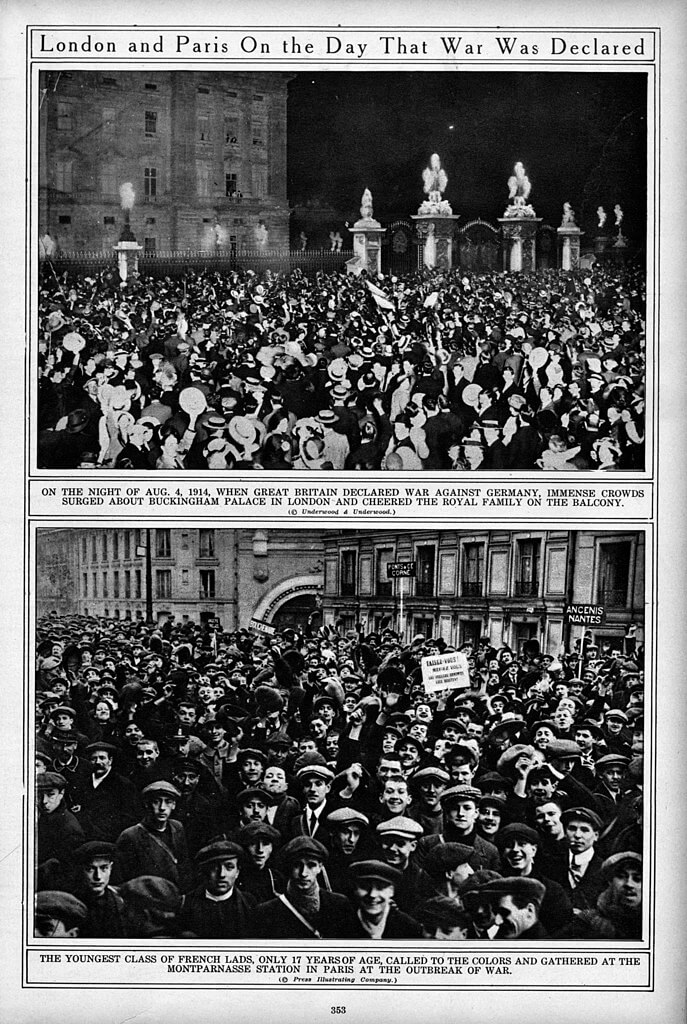
This rejection of Divine Revelation led to something even worse than war: atheistic ideologies. Vicious political revolutions, agitated in various nations by elite and godless radicals and their insidious man-centered philosophies, were becoming a great threat to the Holy Faith.
It had happened in France with the French Revolution, just as it did in Portugal in 1910, and as it would in a demoralized, war-weary Russia in 1917. In that year the Russians overthrew their Christian monarchy, collapsing the ancient Russian Empire and ending the reign of the last Russian Tsar. Vladimir Lenin and his Bolshevik revolutionaries quickly rose to power, eliminated their opposition, and established a powerful atheistic socialist empire. As we shall see, this would have devastating consequences not only for Russia, but for the entire world, and was the event that directly corresponded to Our Lady’s appearances at Fatima.
Where was God during these modern wars and political revolutions?
Would He intervene as men, now armed with weapons of mass destruction, were destroying their neighbors in an unholy war on a level never before seen in history? What would become of the Church as militant atheism spread across the world? When, and how, would this devastating cycle of destruction come to an end?
For many, including the Holy Father, it seemed that the end of the world was drawing near: “When the Son of Man comes, will he find faith on earth?” (Luke 18:8).
It was time for heaven to act.
The Cry of the Pope

Pope Benedict XV, the Vicar of Christ, bore the brunt of this global unrest. The weight of the world and its sin rested like a cross on his shoulders. The Holy Father saw the Great War and its effects as “the suicide of civilized Europe.”
This shepherd of the world’s souls realized that he could not bear this weight alone. He needed divine assistance.
In 1914, near the beginning of the war, he wrote an impassioned encyclical, Ad Beatissimi Apostolorum:
“As soon as we were able from the height of Apostolic dignity to survey at a glance the course of human affairs, our eyes were met by the sad conditions of human society, and we could not but be filled with bitter sorrow. For what could prevent the soul of the common Father of all being most deeply distressed by the spectacle presented by Europe, nay, by the whole world, perhaps the saddest and most mournful spectacle of which there is any record. Certainly those days would seem to have come upon us of which Christ Our Lord foretold: “You shall hear of wars and rumors of wars – for nation shall rise against nation, and kingdom against kingdom” (Matt. xxiv, 6, 7).
On every side the dread phantom of war holds sway: there is scarce room for another thought in the minds of men. The combatants are the greatest and wealthiest nations of the earth; what wonder, then, if, well provided with the most awful weapons modern military science has devised, they strive to destroy one another with refinements of horror. There is no limit to the measure of ruin and of slaughter; day by day the earth is drenched with newly-shed blood, and is covered with the bodies of the wounded and of the slain. Who would imagine as we see them thus filled with hatred of one another, that they are all of one common stock, all of the same nature, all members of the same human society? Who would recognize brothers, whose Father is in Heaven?
Yet, while with numberless troops the furious battle is engaged, the sad cohorts of war, sorrow and distress swoop down upon every city and every home; day by day the mighty number of widows and orphans increases, and with the interruption of communications, trade is at a standstill; agriculture is abandoned; the arts are reduced to inactivity; the wealthy are in difficulties; the poor are reduced to abject misery; all are in distress.
…Never perhaps was there more talking about the brotherhood of men than there is today; in fact, men do not hesitate to proclaim that striving after brotherhood is one of the greatest gifts of modern civilization, [while] ignoring the teaching of the Gospel, and setting aside the work of Christ and of His Church…never was there less brotherly activity amongst men than at the present moment…amongst individuals it is self-love which is the supreme law over-ruling everything.”
Letter to the Blessed Mother
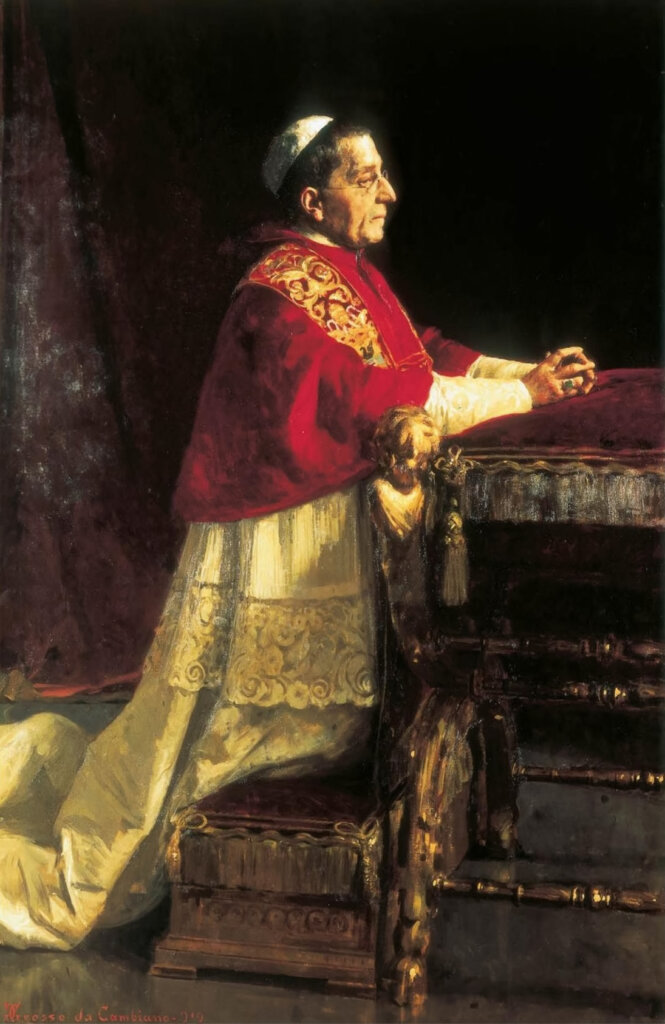
As the war raged on, an exasperated Pope Benedict XV grew desperate. All his efforts at diplomacy and peace were ineffectual. Millions of people continued to die in the conflict. What of their immortal souls?
Even Portugal, the Land of Holy Mary, did not heed the Holy Father’s pleas for peace, and formally entered the war in 1916.
Yet the Holy Father knew that in times of overwhelming darkness and desperation, mankind is not without hope; we always have recourse to the intercession of the Blessed Virgin Mary, who is “our life, our sweetness, and our hope.”
So he appealed to the Mother of Mercy in order to obtain world peace and an end to the war. In a letter dated May 5th, 1917, he wrote:
Our earnestly pleading voice, invoking the end of the vast conflict, the suicide of civilized Europe, was then and has remained ever since unheard. Indeed, it seemed that the dark tide of hatred grew higher and wider among the belligerent nations, and drew other countries into its frightful sweep, multiplying ruin and massacre. Nevertheless Our confidence was not lessened . . .
Since all graces which the Author of all good deigns to grant to the poor children of Adam, by a loving design of His Divine Providence are dispensed through the hands of the most holy Virgin, we wish that the petition of Her most afflicted children, more than ever in this terrible hour, may turn with lively confidence to the august Mother of God . . .
To Mary, then, who is the Mother of Mercy and omnipotent by grace, let loving and devout appeal go up from every corner of the earth – from noble temples and tiniest chapels, from royal palaces and mansions of the rich as from the poorest hut – from every place wherein a faithful soul finds shelter – from blood-drenched plains and seas. May this pious and ardent invocation arise to Mary, the Mother of Mercy who is all-powerful in grace! Let it bear to Her the anguished cry of mothers and wives, the wailing of innocent little ones, the sighs of every generous heart: that Her most tender and benign solicitude may be moved and the peace we ask for be obtained for our agitated world.”
Just eight days later, on May 13th, 1917, a woman appeared to three children. She was dressed in white, more radiant than the sun, her feet resting upon a small holm oak tree.
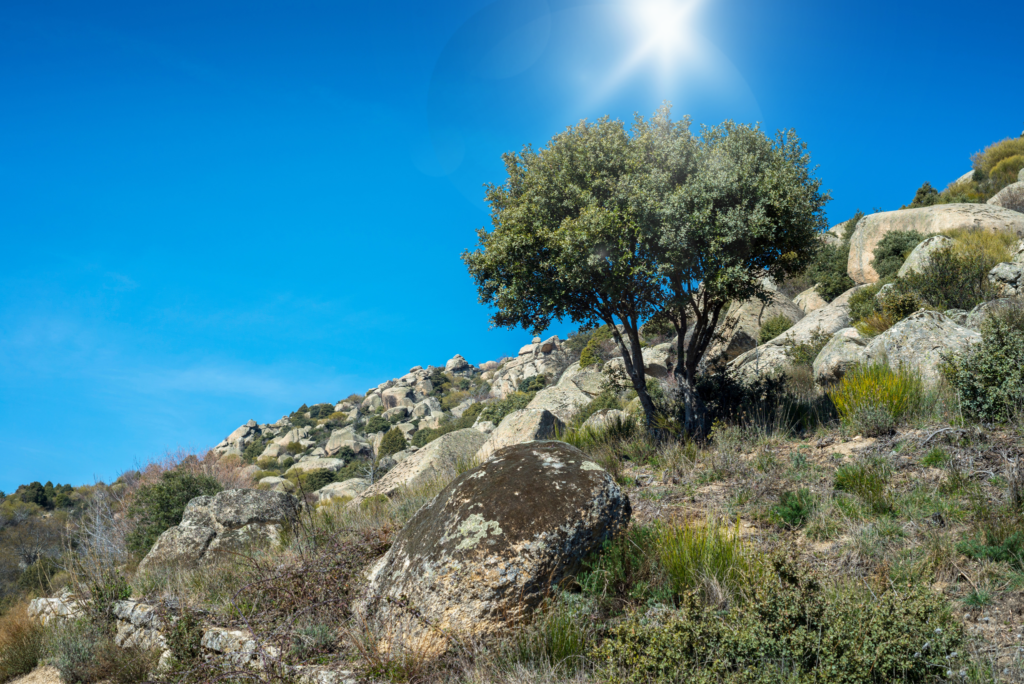
Heaven had answered the Holy Father’s plea for help.
The apparitions, messages, and miracles of Fatima had begun.
Ready for more? There IS more. This article is a free excerpt from the fascinating, highly-acclaimed digital series Fatima: The True Story. Thousands of subscribers have praised this program and its impact on their lives. You can join them, and learn more, by clicking here.
